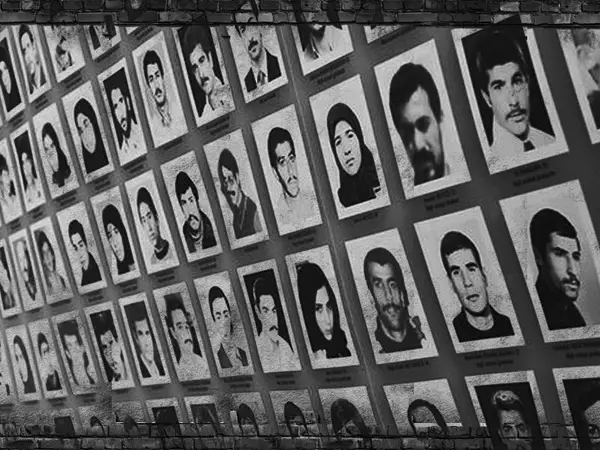The former director of the notorious Evin prison in Tehran has accused President Ebrahim Raisi of having a direct role in executing political prisoners under the founder of Islamic Republic, Ruhollah Khomeini.
Hossein Mortazavi Zanjani said in a virtual meeting on Clubhouse that Raisi, who was the deputy prosecutor of Tehran, told him: "We went and got an order from Ayatollah Khomeini to execute the prisoners."
This is the first revelation by a former judiciary official about the direct involvement of the Iranian president in the killing of political prisoners in the 1980s.
The executions during the 1980s were carried out based on a fatwa by Iran's then supreme leader, Ruhollah Khomeini, against the MEK (The People's Mojahedin Organization of Iran) which carried out a wave of bombings in Iran and struck an alliance with Saddam Hussein during the 1980-88 war.
“Showing mercy to those who take up arms against the Islamic government is being naïve,” Khomeini said in his fatwa.
Most victims were linked to the MEK but there were also others with links to leftist and secular groups such as Fadaiyan Khalq Organization (FKO) and the Tudeh Party as well as some Kurdish groups such as Komala and the Kurdish Democratic Party of Iran.
The exact number of prisoners executed during the purge of prisoners is not known but according to Amnesty International, the Iranian authorities "forcibly disappeared" and "extrajudicially executed" around 5,000 between July and September 1988.
The former director of Evin prison, which has held some of the country’s most high profile cases and is famed for its brutalities to inmates, added that he witnessed the bodies of the executed prisoners thrown into trucks and taken from the prison.
Mortazavi claimed he resigned to what was known as ‘the death board’, the group of decision-makers deciding whether prisoners lived or died. He claims his resignation was met with a death threat by the deputy intelligence minister.
“Although I did not have a direct role in the execution of prisoners, I feel guilty because of my silence about the executions, and even if I repent, I will not be cleansed,” he said.
After his victory in the presidential election in 2021, in response to an Al-Jazeera reporter’s question, Ebrahim Raisi said he has been a "human rights defender" since the beginning of his tenure in the judicial system and "should be commended " for his actions.
Mortazavi further stated that female prisoners still virgins were forcibly married to jailers before the execution. According to the narrative of political prisoners, the clerics of the Islamic Republic believed if the virgin girls were executed, they would go to heaven, and for this reason, they raped them in the form of forced marriage so that they would not die virgins.
”The father of one of the executed virgin girls told me that after the execution of his daughter, the agents gave him money saying the money is for his daughter's marriage endowment."
